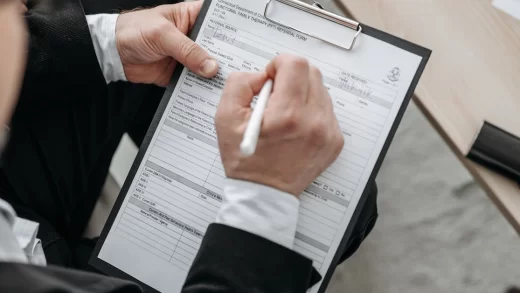Why Is My Dog Acting Weird All Of A Sudden? 10 Signs & Treatments

Why Is My Dog Acting Weird All Of A Sudden? If you’re a dog owner, you’ve likely experienced moments when your beloved furry friend starts behaving strangely out of the blue.
It can be concerning and puzzling to witness your dog acting weird all of a sudden, leaving you wondering what might be causing this unusual behavior.
Dogs, like humans, are complex creatures with their own emotions, needs, and ways of expressing themselves.
Understanding the reasons behind your dog’s sudden behavioral changes is crucial for their well-being and your peace of mind.
While it’s important to remember that I am an AI language model and cannot provide personalized veterinary advice, I can certainly help you explore some common factors that could contribute to your dog’s peculiar behavior.
By recognizing potential causes and being attentive to your dog’s needs, you can take appropriate steps to address the issue and ensure your furry companion remains happy and healthy.
Common Reasons For Sudden Behavior Changes In Dogs
Dogs are known for their consistent and predictable behavior, so when they suddenly start acting weird or exhibiting unusual behaviors, it’s essential to investigate potential underlying causes.
While each dog is unique, there are several common reasons why dogs may experience sudden behavior changes. These include:
- Physical Ailments OR Pain
Dogs may display changes in behavior due to underlying pain or discomfort caused by injuries, illness, or chronic conditions.
- Illness OR Disease
Certain medical conditions, such as infections, hormonal imbalances, or neurological disorders, can manifest in behavioral changes.
- Side Effects Of Medications
Some medications prescribed for dogs can have behavioral side effects, leading to altered behavior.
2. Environmental Factors
- Changes In The Household OR Routine
Dogs are creatures of habit, and significant changes in their environment, such as a move to a new home or modifications to their daily routine, can cause stress and behavioral shifts.
- Moving To A New Location
Relocating to a different environment, with unfamiliar sights, sounds, and smells, can trigger anxiety or fear in dogs, leading to behavioral changes.
- Introduction Of New Pets OR Family Members
The arrival of a new pet, a baby, or even house guests can disrupt the dynamics within a household, causing dogs to feel uneasy or anxious.
3. Emotional OR Psychological Factors
- Anxiety OR Fear
Dogs can develop anxiety or fear-based behaviors in response to specific triggers or general stressors, such as separation anxiety, thunderstorms, or loud noises.
- Traumatic Experiences
Dogs that have experienced traumatic events, such as abuse or accidents, may exhibit sudden behavioral changes as a result of their past trauma resurfacing.
- Aging-related Changes
As dogs age, they may undergo cognitive decline, leading to changes in behavior, including confusion, disorientation, or altered sleep patterns.
Recommended: Why Is My Dog Throwing Up Blood? 15 Causes & Treatments
4. External stimuli
- Loud Noises OR Sudden Disturbances
Dogs have acute hearing, and sudden loud noises like fireworks, construction sounds, or alarms can startle and distress them, causing behavioral changes.
- Extreme Weather Conditions
Severe weather events like thunderstorms or hurricanes can create atmospheric pressure changes and loud noises that unsettle dogs, leading to unusual behavior.
- Presence Of Pests OR Insects
Infestations of fleas, ticks, or other pests can cause discomfort and itchiness, prompting dogs to exhibit unusual behaviors such as excessive scratching, biting, or restlessness.
It’s important to note that this list is not exhaustive, and each dog’s behavior is unique.
Identifying the specific cause behind your dog’s sudden behavioral changes may require professional assistance from a veterinarian or a qualified dog behaviorist.
They can provide a more accurate diagnosis and recommend appropriate strategies to address and manage your dog’s behavior effectively.
Signs And Symptoms Of Your Dog’s Weird Behavior
When your dog starts exhibiting weird behavior all of a sudden, it’s crucial to pay close attention to their actions and mannerisms.
Identifying specific signs and symptoms can help you better understand what might be causing the unusual behavior. Here are some common signs and symptoms to look out for:
1. Changes In Appetite
- Loss of appetite or refusal to eat
- Increased hunger or excessive begging for food
- Selective eating or changes in food preferences
2. Alterations In Sleep Patterns
- Insomnia or difficulty falling asleep
- Excessive sleeping or lethargy
- Restlessness or frequent waking during the night
3. Aggression OR Irritability
- Unprovoked growling, snarling, or snapping
- Increased reactivity or aggression towards people or other animals
- Heightened sensitivity to touch or being handled
4. Increased Anxiety OR Fear
- Excessive panting, pacing, or trembling
- Hiding or seeking excessive reassurance
- Exaggerated startle response to noises or sudden movements
5. Excessive Vocalization
- Unusual or excessive barking, whining, or howling
- Unexplained whimpering or yelping
- Growling or vocalizing during interactions or in certain situations
6. Changes In Social Behavior
- Avoidance of social interactions or withdrawal from family members or other pets
- Increased clinginess or neediness
- Decreased tolerance for touch or petting
7. Disorientation OR Confusion
- Wandering aimlessly or getting “lost” in familiar surroundings
- Staring into space or appearing dazed
- Difficulty recognizing family members or familiar objects
8. Repetitive OR Compulsive Behaviors
- Excessive licking, chewing, or scratching
- Tail chasing, paw licking, or self-injurious behaviors
- Obsessive pacing, circling, or spinning
9. Changes In Bathroom Habits
- Increased accidents or inability to hold urine or bowel movements
- Frequent urination or increased frequency of defecation
- Straining or difficulty during elimination
10. Other Physical Symptoms
It’s important to note that these signs and symptoms are not exclusive to a single cause and can overlap among various conditions.
If you observe any sudden and concerning changes in your dog’s behavior, it is recommended to consult with a veterinarian.
They can evaluate your dog’s overall health, conduct necessary tests, and provide a professional diagnosis and appropriate treatment plan.
Steps To Identify The Underlying Cause
When your dog is exhibiting weird behavior all of a sudden, it’s important to take systematic steps to identify the underlying cause.
Here are some steps you can follow to help pinpoint what might be contributing to your dog’s unusual behavior:
1. Observe And Document The Behavior:
Pay close attention to the specific behaviors your dog is displaying. Note the frequency, duration, and intensity of the behavior, as well as any triggers or patterns you observe.
Keeping a behavior diary can help identify potential correlations or triggers.
2. Rule Out Medical Causes
Schedule a visit with your veterinarian to rule out any underlying medical conditions.
A thorough physical examination, along with any necessary diagnostic tests, can help identify health issues that may be contributing to the behavior changes.
3. Review Recent Changes
Consider any recent changes in your dog’s environment, routine, or diet.
Changes such as moving to a new home, introducing new pets or family members, or modifying their daily schedule can cause stress and behavioral shifts.
Think about when the unusual behavior started and if it coincided with any changes.
4. Consult With A Professional
If the behavior persists or worsens, consider seeking the expertise of a professional, such as a certified dog trainer or a veterinary behaviorist.
Recommended: Why Is My Dog Throwing Up Undigested Food? 8 Reasons & Treatments
They can conduct a behavior assessment, evaluate your dog’s responses, and provide guidance tailored to your specific situation.
5. Gather Information From Others
Speak with family members or anyone who spends significant time with your dog to gather additional insights.
They may have noticed behaviors or events that you might have missed. Their observations can help paint a more comprehensive picture of your dog’s behavior.
6. Consider Behavioral Triggers
Try to identify any specific triggers that consistently precede the weird behavior.
It could be certain sounds, sights, smells, or interactions. Understanding these triggers can help you modify the environment or manage the situation to minimize stress for your dog.
7. Assess Socialization And Training
Evaluate your dog’s socialization experiences and training history. Inadequate socialization or negative experiences can contribute to anxiety or fear-based behaviors.
Assess the quality and consistency of their training to ensure they have a solid foundation of obedience and appropriate behavior.
8. Maintain A Calm And Consistent Environment
Create a calm and consistent environment for your dog. Dogs thrive on routine and clear expectations.
Ensure they have a comfortable space, regular exercise, mental stimulation, and a balanced diet.
Consistency and positive reinforcement can help alleviate stress and improve behavior.
9. Implement Behavior Modification Techniques
Based on the insights gathered, work with a professional to develop a behavior modification plan tailored to your dog’s needs.
This may include desensitization, counter-conditioning, positive reinforcement training, or other techniques aimed at addressing the underlying cause of the behavior.
Remember, each dog is unique, and identifying the underlying cause of their behavior changes may require time, patience, and professional guidance.
By following these steps, you can gain a better understanding of what might be contributing to your dog’s weird behavior and take appropriate measures to address it effectively.
Recommended Actions
When your dog is exhibiting weird behavior all of a sudden, it’s important to take appropriate actions to address the issue and ensure the well-being of your furry companion.
Here are some suggestions on what you may do:
- Consult With A Veterinarian
Schedule a visit with your veterinarian to rule out any underlying medical conditions that could be contributing to the behavior changes.
They can conduct a thorough examination, run necessary tests, and provide guidance on any required treatments or medications.
- Maintain A Calm And Supportive Environment
Create a calm and supportive environment for your dog. Minimize sources of stress, provide a comfortable and safe space, and establish a consistent routine.
Ensure that your dog has access to appropriate food, water, exercise, mental stimulation, and regular opportunities for bathroom breaks.
- Follow Professional Guidance
If the weird behavior persists or worsens, seek the help of a professional, such as a certified dog trainer or a veterinary behaviorist.
They can assess the behavior, identify the underlying cause, and develop a tailored behavior modification plan to address the issue effectively.
Follow their recommendations and be consistent in implementing the suggested strategies.
- Address Any Environmental Factors
Consider any recent changes in your dog’s environment and address them appropriately.
Gradually introduce changes, provide positive associations, and ensure your dog feels secure and comfortable.
Minimize exposure to triggers that may be causing stress or anxiety.
- Provide Mental And Physical Stimulation
Engage your dog in regular mental and physical activities to keep them stimulated and reduce boredom.
This can include daily walks, interactive play sessions, puzzle toys, and training exercises.
Mental and physical stimulation can help alleviate stress and redirect their energy into positive outlets.
- Use Positive Reinforcement
Utilize positive reinforcement techniques to encourage desired behaviors and discourage unwanted ones.
Reward your dog with treats, praise, and attention when they exhibit appropriate behavior.
Avoid punishment-based training methods, as they can increase anxiety and worsen the behavior issues.
- Seek Socialization Opportunities
Proper socialization is essential for a well-adjusted dog. Expose your dog to different people, animals, and environments in a controlled and positive manner.
Gradually introduce them to new experiences and provide positive reinforcement for calm and appropriate behavior.
Consider Professional Training
If your dog’s behavior issues persist or become unmanageable, enrolling them in professional training classes or working with a qualified dog trainer can be beneficial.
They can provide guidance on obedience training, behavior modification techniques, and help strengthen the bond between you and your dog.
Maintain Regular Veterinary Check-Ups
Schedule regular veterinary check-ups to monitor your dog’s overall health and well-being.
Routine examinations can help detect any underlying medical conditions early on and ensure that your dog is in good health.
Remember, addressing sudden behavior changes in dogs requires patience, consistency, and professional guidance.
By taking these recommended actions, you can work towards understanding and resolving the underlying causes of your dog’s weird behavior and promote their overall happiness and quality of life.
Preventive Measures
Taking proactive steps to prevent behavior issues in dogs can help maintain their overall well-being and prevent sudden and weird behavior changes. Here are some preventive measures you can implement:
- Early Socialization
Start socializing your dog at a young age. Expose them to various people, animals, and environments in a positive and controlled manner.
This helps them develop confidence, learn appropriate behavior, and reduces the likelihood of fear or aggression-related issues later on.
- Obedience Training
Invest time in basic obedience training for your dog. Teach them essential commands such as sit, stay, come, and leash manners.
Training not only establishes a bond between you and your dog but also provides mental stimulation and reinforces good behavior.
- Provide Mental And Physical Stimulation
Engage your dog in regular mental and physical activities to prevent boredom and restlessness.
Interactive toys, puzzle feeders, and regular exercise sessions can help keep their minds and bodies active, reducing the chances of behavior problems.
- Create A Regular Regimen Since Dogs Enjoy Predictability And Routine
Establish a consistent daily schedule for feeding, exercise, playtime, and rest. This helps them feel secure, reduces stress, and provides structure to their day.
- Proper Healthcare
Ensure your dog receives regular veterinary check-ups, vaccinations, and preventive treatments for parasites.
Maintaining their physical health reduces the risk of medical conditions that can contribute to behavior changes.
- Nutrition And Diet
Provide a balanced and appropriate diet for your dog’s age, breed, and health needs.
The ideal food for your dog should be determined in consultation with your veterinarian.
Proper nutrition supports overall health and can have a positive impact on behavior.
- Positive Reinforcement
Use positive reinforcement techniques to reward good behavior and encourage desired actions. Praise, treats, and attention can be powerful motivators for dogs.
Avoid punishment-based training methods, as they can lead to fear and anxiety-related behavior issues.
- Monitor Their Environment
Be aware of your dog’s surroundings and ensure they are safe and secure. Minimize exposure to potentially stressful situations or stimuli.
Provide a comfortable and quiet space where they can retreat when they need a break.
- Stay Attuned To Their Needs
Regularly assess your dog’s physical and emotional needs. Ensure they are receiving adequate exercise, mental stimulation, and social interaction.
Spend quality time bonding with your dog to strengthen your relationship and address any potential issues early on.
- Seek Professional Guidance
If you encounter any concerns or challenges with your dog’s behavior, don’t hesitate to seek professional help.
Certified dog trainers, behaviorists, or veterinarians with behavior expertise can provide guidance, training techniques, and advice tailored to your dog’s specific needs.
By implementing these preventive measures, you can create a supportive and enriching environment for your dog, reducing the likelihood of sudden behavior changes and promoting their overall well-being.
Conclusion
In conclusion, sudden behavior changes in dogs can be alarming, but by being observant, seeking veterinary advice, and taking appropriate actions, we can better understand and address these issues.
Health-related problems, environmental factors, and emotional well-being are all potential contributors.
By prioritizing preventive measures, such as socialization, training, and maintaining a consistent routine, we can minimize the occurrence of behavior problems. You can visit Globlar.com for news and updates!
Remember, seeking professional help when needed and providing a supportive environment are key to resolving and managing your dog’s unusual behavior.














